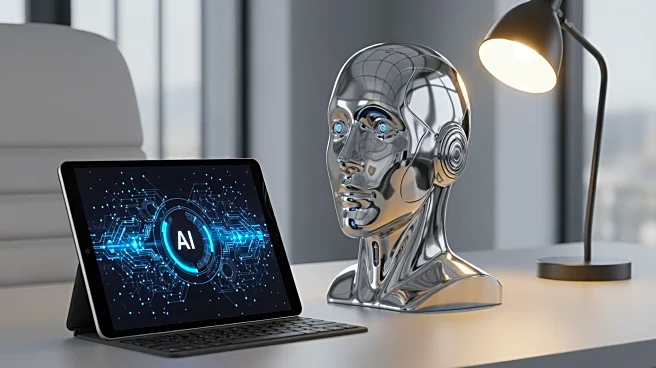What's Happening?
AI-generated headshots are gaining popularity among job seekers as a cost-effective alternative to professional photography. With the rise of AI tools like InstaHeadshots and Canva's new feature, individuals
can create professional-looking images quickly and affordably. This trend is driven by the need for a polished digital presence in a competitive job market, where first impressions are often made online. The use of AI headshots is becoming more common, with many job seekers reporting increased interest from employers after updating their profiles with AI-enhanced images.
Why It's Important?
The adoption of AI headshots reflects broader trends in the job market, where digital presence and first impressions are increasingly important. This shift could democratize access to professional-quality images, allowing more individuals to compete on an equal footing. However, it also raises ethical concerns about authenticity and the potential for deception. As AI technology continues to improve, distinguishing between real and AI-generated images may become more challenging, impacting hiring practices and candidate evaluations.
What's Next?
As AI headshots become more prevalent, there may be increased scrutiny from employers and platforms like LinkedIn regarding the authenticity of profile images. This could lead to new guidelines or policies to ensure that images accurately represent individuals. Additionally, the technology is likely to continue evolving, offering more sophisticated tools for creating realistic and personalized images. The balance between accessibility and authenticity will remain a key consideration for both job seekers and employers.
Beyond the Headlines
The rise of AI headshots highlights the tension between technological innovation and the need for authenticity in professional settings. While these tools offer new opportunities for individuals to enhance their digital presence, they also challenge traditional notions of identity and representation. As the technology becomes more widespread, it may influence cultural perceptions of professionalism and the role of personal branding in career advancement.









